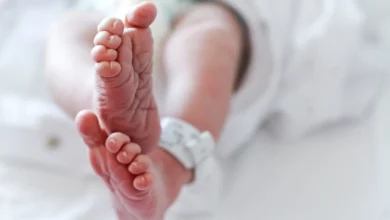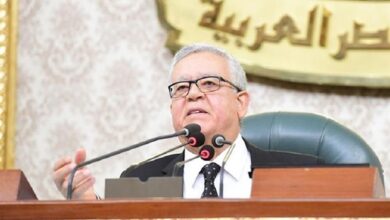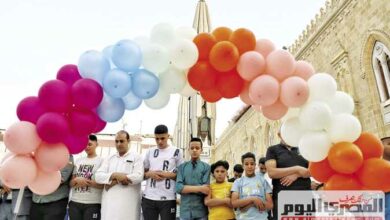Everything is falling into place. Children are dressed in new clothes, street fairs and festivals are being held, and lights and colorful decorations are just about everywhere. Eid is here to crown the end of the holy month of Ramadan.
During the three-day Islamic feast, visiting public gardens, zoos and amusement parks, and taking felucca Nile rides are among the unbroken traditions, especially for children. The biggest attraction for kids, however, is "Eidyah." Eidyah refers to a small amount of money given by parents and adult family members to children on the first day of Eid. Also known as “Eidi” in some countries such as India, it is practiced in many Muslim countries.
Yousry Abdel Ghani, a father of three boys aged six, nine and 13, says that despite his sons’ different ages, he gives Eidyah to each one equally. “Islam urges Muslims to deal justly with children, so I am keen on instilling the importance of fairness in them at a young age.”
Mahmoud Saeed believes that Eidyah is a positive social tradition that fosters a healthy family. As a father of 17 and 19-year-old daughters, Saeed says he still insists on giving his children Eidyah even after they have become teenagers in order to strengthen their family ties.
Mena Khaled points out another advantage of giving Eidyah to children, saying that it taught her 13-year-old son how to conserve money from a young age. “I already bring him new gifts and clothes before Eid, so I teach him not to spend all the money [Eidyah] he gets from his relatives on nonsense,” she says. “Children need to know at a young age the value of money and what to spend it on.”
“No Eid without Eidyah,” says Ashraf Mohamed, who lives in Sayeda Zeinab. The seven-year-old spends his Eidyah on sweets, as well as swings, rides and trampolines for his yard.
In many working-class neighborhoods, street carnivals are held for children to enjoy puppets, magic shows or amusement rides. Others head to movie theaters to watch one of the handful of Arabic movies specifically released for Eid.
Eidyah has become the rite of passage for children during Eid, as well as an excellent way to teach lessons and bring families closer together.




